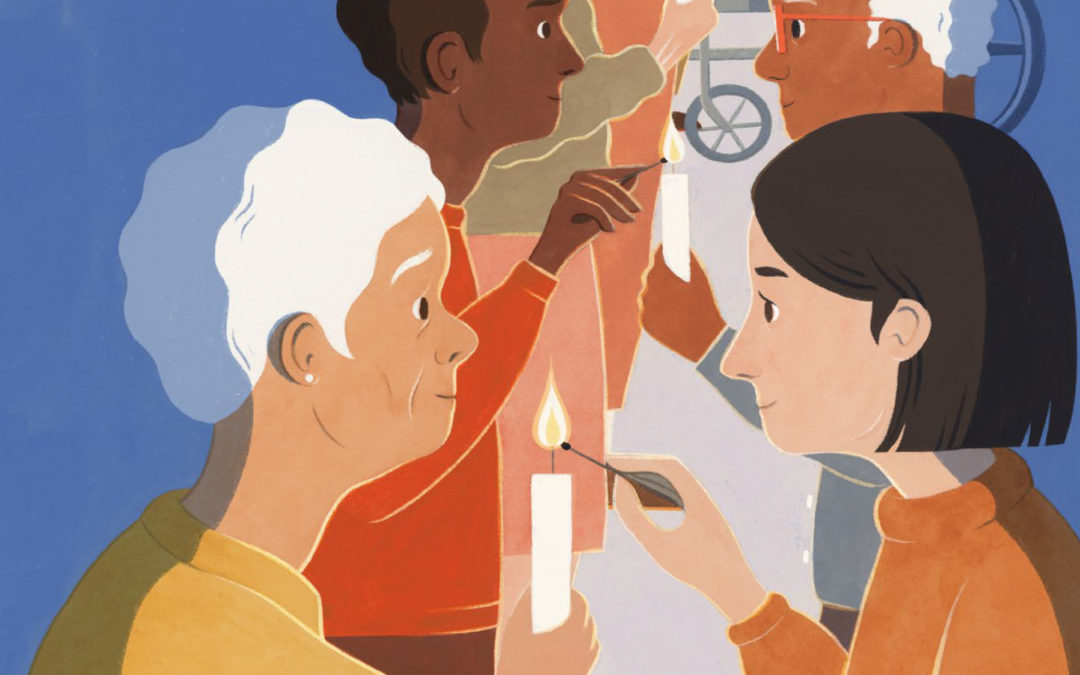by Sarah Carson—
When I made the move from Chicago to Michigan, I knew there were many things I’d miss—my friends, of course, and my second family at Grace Lutheran Church in Evanston, Illinois. I knew I’d also miss my Saturday walks to the lakefront, and being able to hop on my bike and get anywhere I needed to go.
What I often miss most, though, is the food from local restaurants—crab Rangoon, fish tacos, mandoo dumplings and western burgers. More than meals, these dishes offered sustenance and ritual. Even now, after a long day of work, or a particularly tough challenge, it’s hard not to look back with a tinge of sadness and think, If only I could have [insert comfort food here].
Life was better back then, I’m sometimes tempted to think.
“Why does the past always look so pretty?” Susan K. Olson asks (p. 16). As the COVID-19 pandemic has kept her and her daughter at home, they’ve been watching “The Dick Van Dyke Show.” “When I look at the tidiness of the Petries, it’s a life I view with a mixture of nostalgia and regret,” she says.
Isn’t looking backward always like that? Oh, what I wish I hadn’t left behind, we say to ourselves. What I wish I’d done differently. What I wish I could get back.
“Nostalgia can tempt us to remember the past selectively—to create a vision in our minds of ‘good old days’ that never truly existed and that the present can never live up to,” Bible study author Meghan Johnston Aelabouni writes about Holy Time, the theme of Gather’s fall study (p. 20). “Or we may discover that our memories stand in contrast to those of our neighbors. The same times we remember with fondness might have carried pain for others, or vice-versa, because of the different circumstances we faced.”
Is looking back and remembering a bad thing? Not necessarily. But how we remember—and why— are perhaps more important than what. I remember those meals not only because of the people with whom I shared them, and the adventure, curiosity and oodles of free time I had to try new things.
“Rituals keep us grounded and centered,” Jordan Miller-Stubbendick writes (p. 6). “But they do need a quality of attention, and an openness to the sacred.” There’s a difference, she asserts, between doing the same thing over and over and doing something with meaning and intention.
Do I lament the loss of late nights spent sharing sundaes with my friends? Or do I thank God for those experiences, and a lifetime of always having something on my plate? Can I use my memories to remind me that I am called to ensure my neighbor has enough to eat, as well?
“I believe worship is a form of memory…an acknowledgement of everything that has come before, and a statement of faith in everything that will come after,” Abigail Accettura writes (p. 10). “But the reverse is also true: Memory is a form of worship.”
Who or what are we worshipping with our memories? Can we remember to reimagine? I hope this issue reminds you—as it has reminded me— that in gratitude for what we’ve been given, we can look forward to what we, too, can give.
Sarah Carson is managing editor of Gather.
This article is excerpted from the September 2020 issue of Gather magazine. To read more like it, subscribe to Gather.



